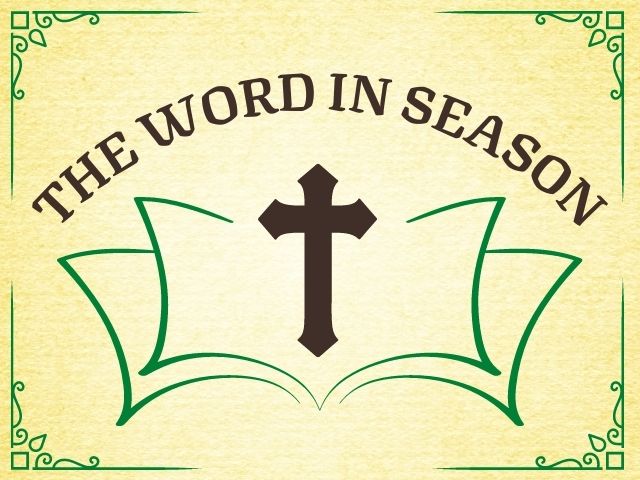
Sunday Readings
September 3, 2023
Jer 20:7-9
Ps 63:2, 3-4, 5-6, 8-9
Rom 12:1-2
Mt 16:21-27
It’s probably the last thing Peter ever expected to hear.
There, in that moment, Jesus Christ was speaking of suffering and death, how he would be killed and yet be raised. What Jesus was describing was shocking. Peter, hearing this grim prophecy, was trying (or so he thought) to express support and loyalty.
“God forbid, Lord!” Peter said. “No such thing shall ever happen to you.”
That was too much for Jesus. He turned to the one he had called The Rock, and in four quick words, effectively dismissed him as clay.
“Get behind me, Satan,” Jesus said to him. “You are an obstacle to me.”
Imagine the look on Peter’s face — the shock, the shame, the disbelief.
But Jesus wasn’t finished. “You are thinking not as God does,” he explained, “but as human beings do.”
This brings us to a central question of this Sunday’s scripture, and a challenge that should humble us all.
You can sum it up in four little words: how does God think?
Reflecting on that can be an effective and sobering examination of conscience. It forces us to look at ourselves and our choices differently. Let’s face it: Most of the time, we go about our lives, slogging through problems and pitfalls and trying our best, doing what we hope is right, and making choices we pray will be part of God’s plan for us.
But how do we know? How can we really be certain? Well, honestly, we can’t.
But that doesn’t mean we shouldn’t try. This Gospel asks us to try, to step outside our normal way of doing things — outside our comfort zone, if you will — and to consider, even briefly: What does God think of what I’m doing?
More pointedly: How does God think?
Are we thinking with God, like God? Or are we deluding ourselves into thinking “as human beings do?” How can we know?
This Sunday’s reading from Paul’s Letter to the Romans offers some advice:
“Do not conform yourselves to this age
but be transformed by the renewal of your mind,
that you may discern what is the will of God,
what is good and pleasing and perfect.”
It begins with realizing that we are called not to be conformists — but to be transformed. To change. To discern. To grow beyond what we are and, in the process, fulfill the will of God.
No one said it would be easy. As Jesus explained: “Whoever wishes to come after me must deny himself, take up his cross, and follow me.”
The hard reality of all that means that in the Christian life — a life of sacrifice and self-giving, of devotion to God and to our neighbor — there will be suffering. We will carry the weight of wood. We will feel thorns. We will bleed.
In one of his most celebrated quotes, Daniel Berrigan put it bluntly. “If you want to follow Jesus,” he once said, “you better look good on wood.”
What Jesus was telling Peter, and us, was that this new way of living — The Way — would come at a cost. As St. Paul would put it: It’s not for conformists, or those who want to be comfortable. It is for those who wish to be forever changed, transformed, and who want to transform the world.
We are called to be those people — the original Transformers! — and to turn with prayerful trust to the God who thinks differently, acts differently, plans differently and who invites us, in fact, to love differently.
We may not understand it. Peter surely didn’t. But part of our ongoing journey through the Christian life is learning to embrace God’s plan for each of our lives, just as Jesus did, and to pray in quiet hope for the gift of understanding and, ultimately, acceptance. It’s a journey without end, a quest without limits. And it can be full of astonishments.
Think you know how God thinks? Think again. And again.
Deacon Greg Kandra is an award-winning author and journalist, and creator of the blog, “The Deacon’s Bench.”

